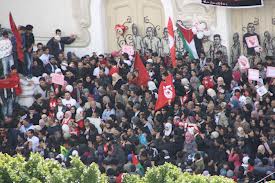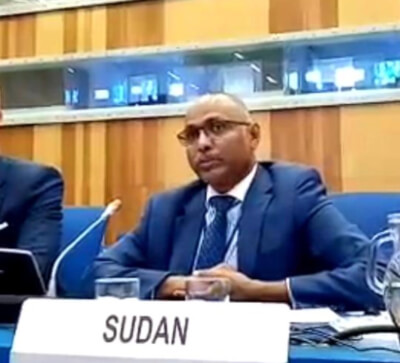Ray of Hope from Tunis, despite criticism
By Abdennour Toumi

Tunisian parliamentary election put an end to the Islamists rhetorical course and reset the secularists theoretical discourse. There is worthy of comment due to the repeated and disappointing coverage by Western and Arab media alike. Such “twisting” of the news continues as Western media persists in misinforming its general public and writing off the Arabs’ hope as a lost cause, disrespecting millions of Arab men and women struggling for freedom, dignity, and even one day, democracy.
Currently these sources serve as the only reference to the Arab revolts (“Arab Spring”), which in future I shall refer to as the “Arabs’ Spring.” This, despite the fact that Arab conspirators and the so-called nationalist-conformists call it the “Arab Illusion.” To be honest, the news from the region is dire, so why should one assume a positive outlook! Indeed, the narrative of the Arabs’ Spring is to bury the dystopian ideology of the nuisance forces in the region.
In point of fact, Arab people are trying to remove tyrannical regimes and eventually establish democratic systems in their place. But so far, they are failing, leaving the region in chaos and anarchy instead.
This concerted struggle that is taking place, whether in Mauritania, Algeria, Tunisia, Libya, Egypt, North Sudan or Yemen, is obstructed by solid pockets of resistance to real change by agents deep within the state. These agents, supported by the arrogant elite and scornful Western governments, are creating a nuanced judgement, so the outcome is made worse and contributes further to the political turmoil.

This can certainly be seen in Libya, Egypt and North Sudan. For the former, two neighboring countries with different political cultures and systems, the level and intensity of chaos is about the same. Whereas in North Sudan, General el-Bechir is harvesting what he sowed for his twenty-five years in power.
In this context it is fair to mention that some Arab countries are actually capable of achieving a transition to a semi-democratic state, especially given the short period of time since the revolts were sparked.
As for Western media, I follow American and French coverage daily. The immediate problem for most Americans lies in confusion over their own current political tragicomedy. As for the French, it is not among their priorities, especially Tunisia, which for them is like Puerto Rico. One recalls the statement of Madame Alliot Marie, then-Foreign Minister, who suggested the French “savoir-fer” — metal sticks and modern helmets (1) — for the police to restore law and order.
Nevertheless, the news from Tunisia is irresistibly hopeful, considering the circumstances of a country that has enjoyed only two years of freedom to shape its future following half-a-century of one ruling party and rampant nepotism.
The most significant aspect of events in Tunisia is the capacity of all the major political actors, including the Islamist En-nahdha Party that led the ruling coalition, to negotiate, and more importantly, to compromise, in order to maintain the political transition toward pluralism and allow all ideological groups to compete for power.

As evidence of such willingness on their part, En-nahdha and a handful of smaller “lefty” opposition parties agreed in the past to launch a new national, political dialogue to resolve political impasse.
Now, the discussion about to form a coalition government includes eventually all the parties represented in the elected National Assembly, which is responsible for the future governent’s acts and leading the way to the next week presidential elections.
The dialogue of the political process was drafted by the UGTT (2), the Tunisian League for Human Rights, and the Tunisian Bar Association, which affirms the critical role that independent, civil society groups can have a say in such historic transitions. At this point, the credit goes to President Dr. el-Merzouki, whose serious commitment to democracy is playing a major role in shaping his country and the region’s political destiny.
Meanwhile, Libya is in societal disorder; Egypt is suffering from relative political violence due to the polarization between Islamists and the military/so-called “liberals” and the diabolizing campaign from the two main political antagonists. However, Tunisia is in process of forging an agreement, a sort of social contract, that offers an end to political assassinations and violence.
Such a civilized act could be extended to Libya and Egypt and lead to a peaceful, political transition for those countries as well.
Unfortunately for Egypt, General Es-sissi regime is not showing any sign of relenting at this time. Nonetheless, in spite of the political upheaval and ensuing turbulence, there is a valiant effort underway, and the Arab people can feel a ray of hope from Tunis.
_________
1 – Madame Alliot Marie offered the French “savoir-faire” to resolve this “law and order” matter before the French National Assembly (Parliament), January, 2011.
2 – A French acronym for General Union for Tunisian Workers.






- The Israeli-Palestinian Conflict: Is the Neither-Peace-nor-Security As-sumption Dominating Again? - June 7, 2021
- Algeria: “I Can See Clearly Now” - August 5, 2019
- Majesty Mohammed VI and General Gaïd Salah Tear Down This Wall! - July 29, 2019






















